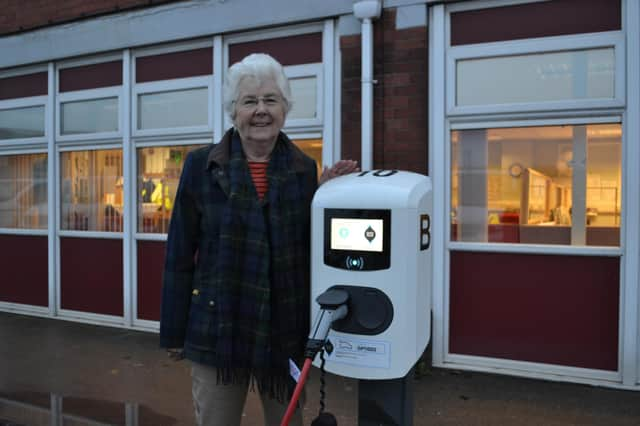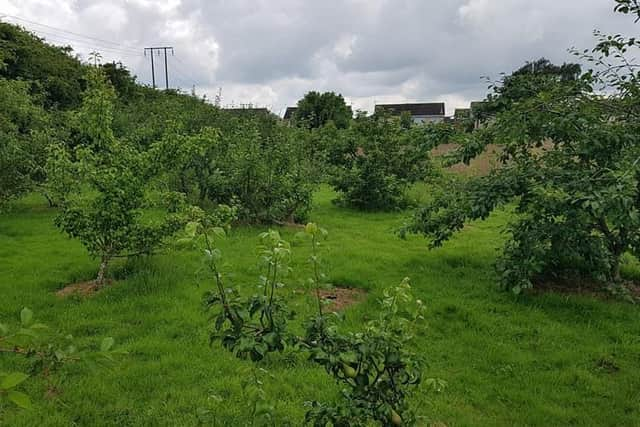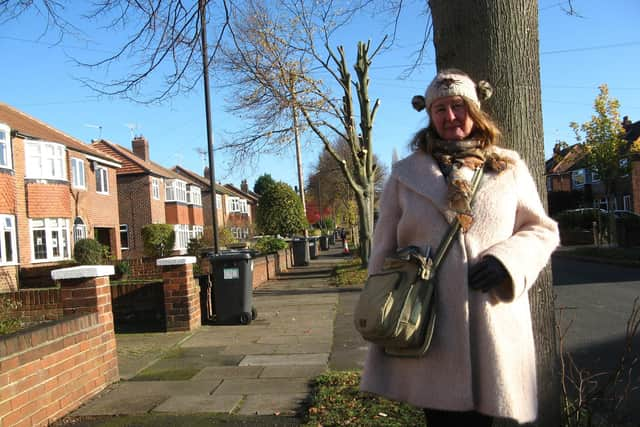COP26: What Doncaster Council has said it's done to tackle climate crisis as activists say more action is needed


The goal set by the council is to reduce carbon emissions by 85 per cent borough-wide by 2030 and achieve net zero carbon by 2040.
It comes as world leaders gather in Glasgow for the UN climate summit – COP26 – where delegates from more than 200 countries come together to try and keep global temperatures under 1.5 degrees celsius.
Advertisement
Hide AdAdvertisement
Hide AdTeam Doncaster partners, which include the council as well as public and private sector organisations, formed the Doncaster Climate and Biodiversity Commission.


Chaired by Ed Miliband, Doncaster North MP and Shadow Secretary of State for Business, Energy and Industrial Strategy, the report was published in December 2020.
Some of the pledges other included:
- To plant one million trees across DoncasterTo allocate £5m for the initiation of environment and sustainability activities
- To ‘examine all viable options’ as part of the ambition to replace the council’s diesel and petrol transport fleet with zero emissions alternatives
Advertisement
Hide AdAdvertisement
Hide Ad

- To develop a habitat bank for developers to deliver on their biodiversity net gain obligations
- To pilot a naturalisation approach to the management of greenspaces
But members of Doncaster Green Party have said that expansion of Doncaster Sheffield Airport ‘flies in the face of a climate emergency’ and that the borough’s iPort should be used more in terms of freight transportation.
Kate Needham from the borough’s Green Party also said the council should immediately ban Glyphosate and that planting a million trees as set out by Mayor Jones only goes so far.
Advertisement
Hide AdAdvertisement
Hide AdIn the recent past, the council has set out in more detail what it’s already done and what it plans to do in order to meet the net zero target by 2040.
- Purchased electric vehicles for the DMBC fleet and 25 on order
- Installed 34 EV charging bays and a further 20 approved for development which includes a 91kw solar carport at the rear of the Civic Office
- Funding approved for 80 new public EV charging bays for development before March 2022 doubling the current public EV charging offer in Doncaster
Advertisement
Hide AdAdvertisement
Hide Ad- Planning approval given for developing Scarborough House car park which would include 50 charging bays for fleet and public use.
- £18.8m approved for housing retrofit, insulating over 2,000 homes
- Funding secured to decarbonise the heat supply at Askern Leisure Centre. One of only two remaining coal heated leisure centres in England
- Over £2.6m approved for lighting upgrade and solar installation on 11 Council buildings
Advertisement
Hide AdAdvertisement
Hide Ad- The first ‘Tiny Forest’ planted in Doncaster (600 trees), with a further 11 sites in scope for planting in school grounds – subject to funding
- Covid Memorial Woodland at Sandall Park Playing Field – 1,500 trees to be planted in November with 60 hectares of land being assessed for tree planting in this coming season
- Natural Capital mapping exercise undertaken to assess the value of sites in relation to carbon dioxide absorption; arable land; habitat; erosion control; recreation; visual amenity; biodiversity; temperature regulation
- Carbon Literacy training commenced and now in high demand from staff and from elected members
Advertisement
Hide AdAdvertisement
Hide Ad- More than 50 sites allowed to bloom wildflowers, over an area spanning three hectares
- Excess wood chip is picked up by the Stobarts company and recycles as Biomass for sustainable fuel, whilst logs are provided to schools for educational projects
- Aim to eliminate the use of Glyphosate – a powerful chemical-based herbicide – and the council are trialling alternative approaches
- Fly Tip Removal: Over the previous year cleared roughly 175 tonnes of fly-tipped goods, which involved 1,614 completed jobs, representing a 210% increase from the previous period in 2020
Advertisement
Hide AdAdvertisement
Hide Ad- Two electric turn mowers purchased to make grass-cutting operations more environmentally friendly with the lithium-ion batteries that power the new mowers saving nearly seven tonnes of carbon per year.
But Ms Needham, from Doncaster Green Party, said: “Airport expansion flies in the face of tackling the climate emergency. There are no jobs on a dead planet.
“The two Greens on the climate commission argued strongly for the council to ban the use of glyphosates.
“We argued about the impact on wildlife in our area and the attached report supports our concerns, suggesting that glyphosate’s environmental accumulation could render insects more susceptible to microbial infections, contributing to their decline in numbers.
Advertisement
Hide AdAdvertisement
Hide Ad“EV cars bring environmental issues of their own. The mining of lithium and the production of lithium-ion are both incredibly labour intensive and since the majority of it is not being recycled the impacts on the environment are costly.
“On top of this as lithium-ion battery production increases this causes a demand strain on precious metals that are needed to produce it causing environmental concerns from the waste generated. The extraction process of lithium uses a lot of water in the extraction process.
“The planting of saplings, the tiny forests and so on may be good community projects but these are not the answer to the climate crisis.
“Mature trees, around 30 years old, are very good at sequestering carbon and supporting wildlife. Each of them, a microhabitat with small insects and animals that rely on them. A new sapling cannot match this.
Advertisement
Hide AdAdvertisement
Hide Ad“A million trees planted over 10 years will take 30 years to reach that same level of sequestration and wildlife support -putting it beyond the council’s own stated aim to be carbon neutral by 2040.”
Ros Jones, Mayor of Doncaster, said: “We have witnessed the devastation climate change is having on our planet first-hand. The floods of November 2019 and February 2020 which wreaked havoc on many of our communities and the wildfires on Hatfield Moors peatlands which damaged so much precious natural habitat, showed action was needed. This is a top priority for now and the future.
“As a council, we are fully committed to doing all we can and have made great strides in the last two years.
Planting new trees, creating green gateways, investing in 100 per cent electric fleet vehicles, creating more electric vehicle charging points, making homes more energy efficient, installing solar panels on buildings and properties, promoting active travel to encourage more people out of their car and naturalising green spaces to promote biodiversity and wildlife.
“There’s a huge list of work we have done and plenty more in the pipeline.”
Comment Guidelines
National World encourages reader discussion on our stories. User feedback, insights and back-and-forth exchanges add a rich layer of context to reporting. Please review our Community Guidelines before commenting.